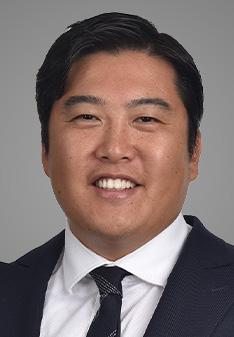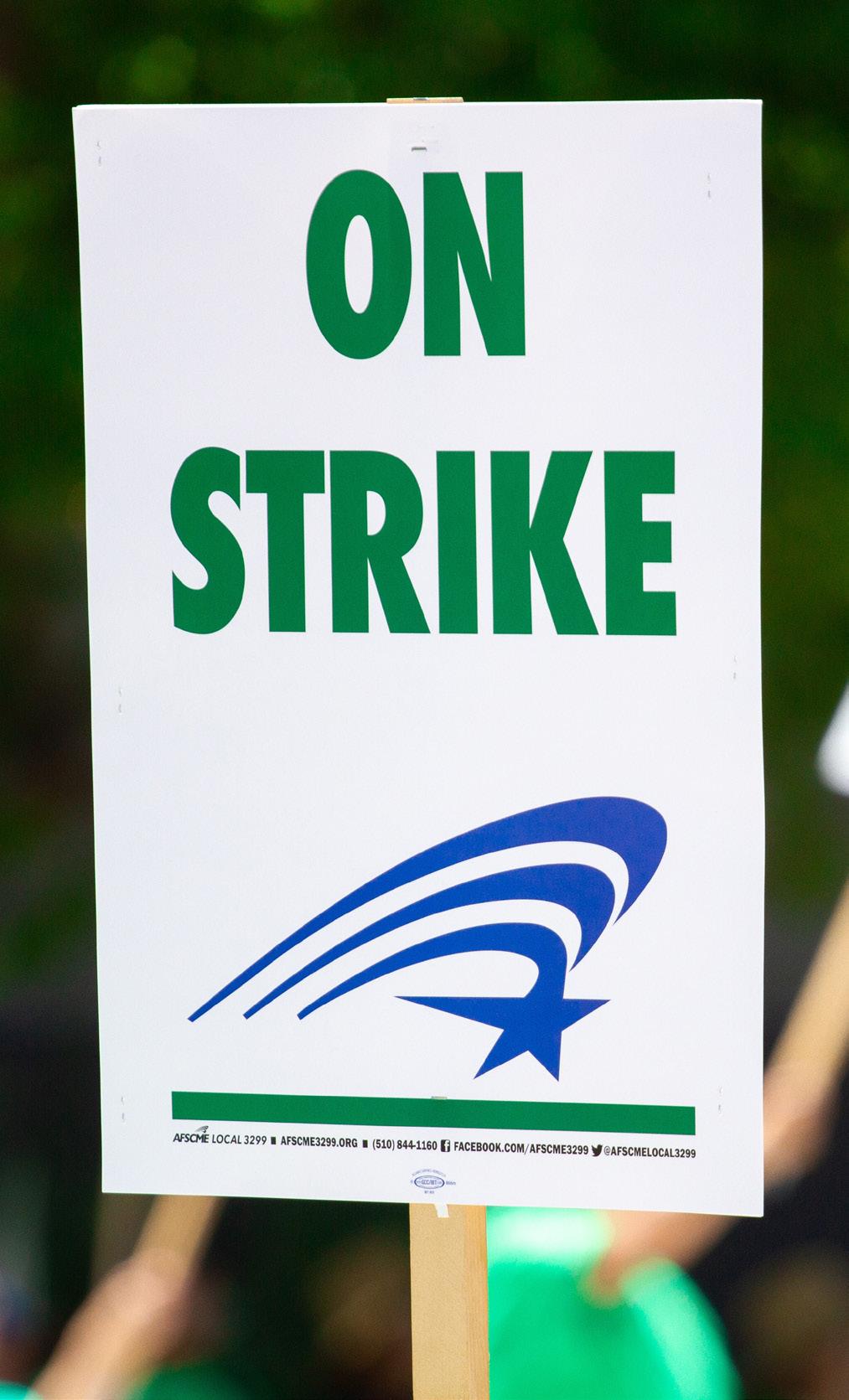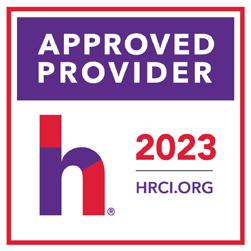Client Update











A Police Sergeant with over 20 years of law enforcement experience and approximately seven years of supervisory experience was terminated after an investigation sustained approximately 224 findings of misconduct. These findings involved violation of nearly a dozen Department Rules and Regulations and criminal misuse of the CLETS database in violation of Penal Code Sections 11142 and 13303. The findings involved failure to supervise, failure to activate body worn camera footage, failure to abide by pursuit and ridealong policies, engaging in prohibited associations, inappropriate on-duty text messages, and dishonesty.
In late March 2021, the Department discovered the Sergeant conducted approximately 67 unauthorized “bar checks” since January 2021. The Sergeant had been admonished two previous times to stop his bar check activity. On several occasions, these unauthorized “bar checks” led to dangerous pursuits in disregard of Department policies and community and officer safety.
In one instance, the Sergeant remained in the bar with his civilian ride-along to conduct an unauthorized “bar check” instead of intervening when he observed an inebriated woman stumble into her vehicle and drive away. The Sergeant called for backup to deal with the woman, but the backup officer was unavailable and the woman ultimately collided into a highway median. When another officer observed the vehicle, she activated her emergency lights and engaged in a pursuit but the woman would not yield. When the Sergeant was called to respond to the pursuit, his civilian ride-along was still
accompanying him in the car. The Sergeant drove at speeds over 100 miles per hour on the freeway, crossed into opposing lanes of traffic on surface streets, and continued driving speeds of over 70 mph in a 40 mph zone. When the suspect vehicle came to a stop and was surrounded, the Sergeant stopped his own vehicle with an unauthorized and dangerous maneuver that placed the passenger side door directly in front of the suspect vehicle, without giving any warning or direction to his ride-along. The suspect vehicle then accelerated and struck the Sergeant’s vehicle with the ride-along still seated in the vehicle. The result was significant damage to the Sergeant’s vehicle and possible injury to the ridealong. The Sergeant reported inaccurate, misleading, and some outright falsehoods about his involvement in this and other incidents.
In dozens of these bar checks, the Sergeant did not activate his body worn video camera, and would improperly tag subsequent pursuit evidence as “bar check.” The Sergeant failed to supervise the other officers on scene during these bar checks and pursuits, and did not report numerous policy violations the other officers made.
Also during the bar checks, the Sergeant had onduty displays of public affection with bartenders and patrons at the various bars. Several officers reported the Sergeant would frequently go to the bars to look at women and comment on their bodies or attire. The Sergeant reportedly also received hugs from the female bartenders, and returned to the same bars he was “patrolling” to have drinks with the bartenders off-duty. These relations led to sexually explicit and provocative text messages, videos, and photos that were sent and received on the Sergeant’s department-issued cell phone, visits to bartenders’ residences, and further physical contact. All this evidence indicated that the Sergeant was conducting “bar checks” to pick up women.
The Department issued a notice of intent to terminate over 100 pages that outlined each of the policies that the Sergeant violated through every count of misconduct. The Department also created a comprehensive record of evidence supporting its decision to terminate. The evidence included a list of all relevant POST and internal trainings the Sergeant had received that related to the misconduct, and to his supervisory role as a Sergeant. The evidence showed that the Sergeant had been thoroughly trained and should have known better.
The Sergeant appealed his termination. After eight days of hearing, and before he finished presenting his case, he voluntarily withdrew his appeal.
The employee claimed additional pay pursuant to the operative memorandum of understanding based on her allegations that she performed duties beyond the scope of her classification. Adrianna and Brian established that the “new” duties the employee had been assigned were in fact contained within the first job duty listed in her job description. As a result, the arbitrator denied the grievance and the employee was not entitled to additional pay.
In spring of 2020, a county hired a class of new and lateral firefighter trainees. The county required both groups of trainees to attend the county’s training academy before they could work as full-time, regular firefighters. In March 2020, just a few days before the academy was slated to begin, California’s Governor issued his statewide “stay-at-home” order in response to COVID-19. Given the uncertainty about the COVID-19 virus at the time, and the need to safeguard the health and safety of all, the county gave the recruits the option of quarantining with training staff in a hotel six nights a week, at the county’s expense, while they attended the academy under a compressed training schedule. Those trainees who wanted to proceed with their academy training signed a hotel agreement wherein they agreed to comply with quarantine restrictions during the training.
After completing the academy, one of the trainees who attend the academy filed a collective action lawsuit claiming he and other “similarly situated” trainees were entitled to compensation under the Fair Labor Standards Act (FLSA) for the time spent staying at the hotel during the academy. The trainee originally filed the suit in state court, but LCW succeeded, on the county’s behalf, to remove the case to federal court. The U.S. District Court first declined to accept jurisdiction, but LCW appealed that issue to the Ninth Circuit Court of Appeals and won.
Once in federal court, the trainee argued that he and the other “similarly situated” trainees should have been paid 24 hours a day, instead of only for the 8 hours per day they spent at the academy. He claimed the time spent at the hotel was “integral and indispensable” to the participation in the academy.
After the county defeated the trainee’s motion to proceed as a collective action, the county filed a motion for summary judgment, arguing that the case should be dismissed because the time spent in the hotel did not count as “hours worked” under the FLSA. The trainee filed a cross-motion for summary judgement to argue the opposite.
The U.S. District Court agreed with the county that the time spent at the hotel was not compensable time because the trainees were free to choose “personal pursuits” there. The evidence showed, among other things, that: the trainees were not required to study during this time; none of the training staff instructed the trainee who sued that he had to study while in the hotel; and the trainee spent most of his time at the hotel sleeping or making phone and video calls.
The Court found that the time was non-compensable for the additional reason that there was an agreement in place regarding the trainees’ compensation. That agreement was reasonable for several reasons, including that: the county offered both regular and overtime pay; trainees were still able to pursue “personal activities” on site; the trainees were not “on-call”; and the statewide stay-at-home order. The Court granted the county’s motion for summary judgment, denied the trainee’s cross-motion, and dismissed the case.
The union claimed that the public agency had assigned veterinarians supervisory duties outside the scope of their class specification in violation of the operative memorandum of understanding. Adrianna and Chris established that: while the general class specification for veterinarian did not list administrative “supervision” in the examples of duties, the job duty statement specific to the public agency (and which one of the grievants helped draft) highlighted the supervisory duties; the job announcements for the position included supervisory duties; and the grievants (all of whom were hired after the job duty statement was updated) were specifically questioned about their supervisory experience during their interviews. The arbitrator denied the union’s grievance.
A fire captain took the promotional exam for battalion chief in April 2019. A female candidate ranked first, the fire captain ranked second, and a younger male colleague ranked third. The top-ranked female was promoted in March 2020.
The fire captain first complained to the Human Resources Director in April 2020 about his beliefs regarding legal violations relating to a consent decree. Under the consent decree, the city received funds from Chevron for the purchase and maintenance of safety equipment. The fire captain believed that an equipment vendor gave the city a credit for the monies the city had paid for equipment maintenance, without maintaining the equipment, so that the city could spend the money on other items in violation of the consent decree.
Through a series of temporary, provisional, and then permanent appointments, the fire chief permanently assigned the younger, third-ranked candidate to a battalion chief position in April 2020.
The fire captain next complained to the Human Resources Director in May 2020 that the April 2020 promotion of the third-ranked candidate violated the rules related to promotions, and that he – as the second-ranked fire captain -- should have been promoted. The fire captain believed age discrimination was the reason for promoting younger, third-ranked candidate.
In May and December 2020, the fire captain learned that the fire chief allegedly gave the battalion chief promotional examination answers to the first and third-ranked candidates. The fire captain alleged that the fire chief did so because of the fire captain’s age.
In December 2020, the fire captain received his annual performance evaluation from the battalion chiefs who had been promoted over him. The performance evaluation rated the fire captain “standard” or “above standard.” The fire captain felt that his written evaluation rated him unfairly. The fire captain claimed he was denied a union representative and his right to record the evaluation meeting. The fire captain felt that these actions occurred because of his age and the fact that he complained about the consent decree.
The fire captain then sued his city employer and fire chief for alleged age discrimination, failure to promote, and whistle blower retaliation for his complaints about alleged violations of: a federal consent decree; California law regarding monies provided by the consent decree; and promotional examination procedures.
The city and fire chief filed a motion for summary judgment, arguing that they had legitimate, nondiscriminatory reasons for their actions and that the fire captain could not show the required nexus between his age and the alleged adverse employment action. The court agreed.
The court credited the city’s evidence that the chief had decided not to promote the fire captain based on his poor performance and lack of fitness for the position. The city provided detailed notes from the administration of the exam that outlined the substantive strengths and weaknesses of the fire captain for that position, as well as later notes in performance evaluations describing his performance issues in working with others. The court found the city’s reasons for these employment actions were legitimate and non-discriminatory.
The court also found there was no retaliation. The fire captain did not complain about age discrimination until May 2020, whereas the alleged adverse employment action of failing to receive promotion first occurred in March 2020. The alleged adverse action occurred before the fire captain complained about race discrimination. Therefore, the two could not be causally linked. Similarly, the fire captain did not complain about the consent decree funds until April 2020, still a month after the adverse action. The court granted the city and fire chief’s motion for summary judgment.

A hearing officer disagreed with a chief of police’s decision to terminate the employment of a senior officer. The basis for the termination was the investigation finding that the officer had a sexual relationship with a then-19-yearold member of the city’s youth program.
The hearing officer’s decision stated that reasonable minds could differ on the level of penalty, and that the chief did not abuse his discretion in selecting termination. Yet, the hearing officer substituted her discretion for the chief’s as to the severity of the officer’s transgression. She reduced the penalty to a two-month suspension without pay.
The city filed a petition for writ of mandate to challenge the hearing officer’s decision. At hearing, LCW argued the law that a decisionmaker’s penalty assessment must stand unless the evidence shows that the penalty was an abuse of discretion. The fact that the hearing officer expressly stated in her decision that the chief had acted within his discretion, was “game over” for the judge. The judge agreed that penalty determination for this misconduct should be left to the chief and upheld the termination.
Peter Q. Nguyen, a Senior Labor Relations Consultant in our Los Angeles office, has extensive experience, having negotiated over forty master agreements and doing labor relations work across many jurisdictions, including municipalities, special districts, K-12, higher education, entertainment, and healthcare. He has also engaged in complex policy analysis, drafted legislation, and taught public policy at the university level.

Will Abramovitz, an associate attorney in Liebert Cassidy Whitmore’s San Francisco office, provides labor and employment law and litigation expertise to our clientele. Prior to joining LCW, Will was an associate at a major international law firm and a San Francisco based law firm where he obtained significant experience litigating and advising on labor and employment matters and complex commercial disputes in both state and federal courts through all stages of litigation.

We are pleased to announce that Nancy López has joined the management team as our Business Development Manager. Nancy has extensive marketing experience, actively working in the field for over 25 years. She comes to us after serving in management level positions with advertising agencies, the world’s largest food company (consumer product goods), the former largest retail wholesaler in the Western United States, and most recently, at a private TK-12 grade school.
“I am thrilled to join LCW’s management ranks and be part of such a prestigious organization,” said Nancy on assuming her new position, “I look forward to leveraging my skills and expertise in marketing and business development to contribute to the continued success of LCW and help drive its growth in the legal industry.”


This four-day workshop will cover all you need to know to understand the key areas covered by the FLSA including:
• FLSA Basics

• Work Periods & Hours Worked
• Exemption Analysis
• The Regular Rate of Pay & Compensatory Time Off
• Conducting a Compliance Review
This is a four-day webinar. You must attend all four days in order to receive credit for the FLSA Academy.
• September 13, 2023, 1:30 pm to 5:00 pm; AND
• September 14, 2023, 1:30 pm to 5:00 pm; AND
• September 20, 2023, 1:30 pm to 5:00 pm; AND
• September 21, 2023, 1:30 pm to 5:00 pm.
The musician Bob Marley once said “one good thing about music, when it hits you, you feel no pain”. At least eight former employees of S&S Activewear would disagree. S&S operated a 700,000 square foot warehouse in Reno, Nevada where many of its employees worked. The company permitted managers and employees to routinely play “sexually graphic, violently misogynistic” music throughout the warehouse. According to the male and female employees who sued, the song lyrics used offensive terms that denigrated women. Songs like “Blowjob Betty” by Too $hort contained “very offensive” lyrics that “glorifie[d] prostitution.” Likewise, “Stan” by Eminem described extreme violence against women.
The music overpowered operational background noise and was impossible to escape because it blasted from commercial-strength speakers placed throughout the warehouse. Sometimes employees placed the speakers on forklifts and drove around the warehouse, making it more difficult to predict—let alone evade—the music’s reach. The music allegedly served as a catalyst for some male employees, who frequently pantomimed sexually graphic gestures, yelled obscenities, made sexually explicit remarks, and openly shared pornographic videos. The music was particularly demeaning toward women, who comprised roughly half of the warehouse’s workforce, but some male employees also took offense. Despite “almost daily” complaints, S&S management defended the music as motivational and allowed it to be played for nearly two years, until litigation loomed.
The former employees filed suit, alleging that the music and related conduct created a hostile work environment in violation of Title VII. The district court granted S&S’s motion to dismiss and denied leave to amend the music claim. The district court reasoned that because the music was offensive to multiple genders, and
no one individual or group was targeted, there was no discrimination because of sex. The employees appealed to the Ninth Circuit.
An employee who brings a hostile work environment claim must show that the employer discriminated because of an employee’s membership in a protected group. The offensive conduct must be “sufficiently severe or pervasive to alter the conditions of employment.” There is no requirement that the harassing conduct only target an individual; nor does one protected class need to be treated differently than another to establish a Title VII hostile work environment violation.
Other U.S. Circuit Courts have decided that a workplace saturated with sexually derogatory content can constitute harassment “because of sex” and that lyrics loaded with sexist slurs expose female employees to uniquely “disadvantageous terms or conditions of employment.” According to those precedents, the Ninth Circuit determined that the music at issue in this case was actionable conduct under Title VII.
The Ninth Circuit also disagreed with S&S that no harassment because of sex had occurred simply because the music was offensive to both men and women. An employer cannot evade liability for a gender harassment claim by cultivating a workplace that is broadly hostile and offensive to both men and women. The Ninth Circuit remanded the case back to the district court for further consideration.
Sharp v. S&S Activewear, L.L.C., 69 F.4th 974 (9th Cir. 2023).
Note:
This case illustrates two important maxims of discrimination and harassment law. First, the Ninth Circuit has joined other Circuits to find that music or sound that pervades a workplace can create a hostile work environment under Title VII. Second, an employer has no “equal opportunity harasser” defense. The fact that employees of different protected classifications are impacted does not provide a defense to a Title VII claim.


Wednesday, October 11, 2023 | 10:00am - 11:30am
In this 90-minute training, which is the second in this series on public employee strikes, we will discuss recent developments in the law concerning strikes as well as practical issues related to strike management. We will discuss strategies and tactics regarding negotiations for line passes for essential employees in advance of a threatened strike and continuing contractual negotiations once a strike is underway. We will also provide information that will assist public employers during a work stoppage, including information related to managing security at strike sites as well as managing personnel issues, such as payroll, overtime and benefits issues, and repairing the employer-employee relationship following the conclusion of the strike. We will also discuss issues related to union or employee engagement in unlawful concerted activities during strikes as well as how to deal with sympathy strikes and employees who refuse to cross a picket line.
Who Should Attend:
Management staff at public agencies, including chief administrative officers, department and division heads, and human resource professionals.
Register here!
For more information on some of our upcoming events and trainings, click on the icons:



Gerald Groff is an Evangelical Christian who believes for religious reasons that Sunday should be devoted to worship and rest. In 2012, Groff took a mail delivery job with the U.S. Postal Service. Groff generally did not work on Sundays, but that changed after USPS agreed to begin facilitating Sunday deliveries for Amazon. To avoid the requirement to work Sundays on a rotating basis, Groff transferred to a rural USPS station that did not make Sunday deliveries. After Amazon deliveries began at that station as well, Groff remained unwilling to work Sundays, and USPS redistributed Sunday deliveries to other USPS staff. Groff received “progressive discipline” for failing to work on Sundays, and he eventually resigned. Groff thereafter sued USPS under Title VII.
Title VII of the Civil Rights Act of 1964 requires employers to accommodate the religious practice of their employees unless doing so would impose an “undue hardship on the conduct of the employer’s business.” Prior Supreme Court rulings, and subsequent lower court rulings, had interpreted this to mean that an accommodation that required an employer to bear
more than a de minimis cost was an undue hardship. This test allowed employers to refuse many religious accommodations.
The U.S. Supreme Court took this opportunity to reinterpret Title VII. The Court held that showing “more than a de minimis cost,” as that phrase is commonly used, does not suffice to establish “undue hardship” under Title VII. Instead, employers must now show that a burden is “substantial in the overall context of an employer’s business.” Such a showing would satisfy the “undue hardship” test and allow an employer to deny a religious accommodation.
The Court stressed that this new standard is very context and fact specific, and requires a careful analysis. The Supreme Court remanded the case to the lower court to determine whether Groff’s claim met the new test.
Groff v. DeJoy, 143 S.Ct. 2279 (2023).
Note:
This USSC decision will make it more difficult for employers to reject a religious accommodation as an undue burden. Even though the USPS is a government agency, the Court did not offer any guidance regarding how to apply this “substantial burden to business” analysis as to a taxpayer funded entity.
To view these articles and the most recent attorney-authored articles, please visit: www.lcwlegal.com/news.

• Quoted in Law360, LCW Partner Shelline Bennett speaks on the National Labor Relations Board’s blocking approach in Starbucks employees’ efforts to decertify their union. When unions try to block decertification elections by filing charges with the NLRB, it can be akin to telling workers, Shelline states, "you don’t know what you’re doing and we know better and we need to take care of you. Sometimes they [unions] do know better. But at the end of the day, I altruistically believe that employees know what they’re doing. … And if they’re saying decertify, then that’s what they mean."
• In a recently aired KNX News Radio segment, LCW Partner Shelline Bennett speaks on TikTok and the importance of employers in establishing clear policies surrounding social media use in the workplace.
• Quoted in Law360, LCW Partner Rick Bolanos speaks on the U.S Supreme Court’s landmark decision finding that non-union public sector workers can’t be forced to pay fees to cover collective bargaining costs, stating that these state laws "presented the most direct effect on collective bargaining.” With regard to the legislation that made it unlawful to force public sector unions to provide full union membership benefits to workers who don’t pay dues, Bolanos states “The employers role was realigned to require the employer to simply ensure there was written certification from employees authorizing the deduction."
• Quoted in Human Resource Executive, LCW Senior Counsel Leighton Henderson discusses the rise in lawsuits faced by major brands following mass layoffs. “An employee is less likely to feel targeted and file a claim if they have been treated the same as other similarly situated employees,” Henderson says. Additionally, while employees may submit a complaint on their way out the door, HR needs to treat those complaints the same as it would a complaint from a current employee, and investigate promptly and thoroughly.






16 years
11 years





 Shelline Bennett Rick Bolanos
Amy Brandt
Tony Carvalho
2 years
4 years
Nathan Jackson
2 years
Super Lawyers
Shelline Bennett Rick Bolanos
Amy Brandt
Tony Carvalho
2 years
4 years
Nathan Jackson
2 years
Super Lawyers
Wanda Brown has served as the elected treasurer for the City of Inglewood since 1987. Brown sued the City and several City Council members (collectively the” City”), alleging that after she reported concerns about financial improprieties, the City and the named City Council members defamed and retaliated against her. She alleged that they took various adverse actions against her, including reducing her duties and authority, reducing her salary by 83 percent, taking away her seat on the dais at the council meetings, and temporarily locking her and her staff out of their offices.
Brown sued for: 1) defamation; 2) violation of Labor Code Section 1102.5(b) & (c), which prohibit retaliation against an employee based on the employee’s reporting or refusing to participate in what the employee reasonably believes to be illegal activity by the employer; and 3) intentional infliction of emotional distress (IIED). The court dismissed Brown’s defamation and IIED claims through various pretrial motions.
The City filed a motion to strike the complaint as a Strategic Lawsuit Against Public Participation, or SLAPP, under California’s anti-SLAPP statute. The anti-SLAPP statute protects defendants from meritless lawsuits that might chill the exercise of their rights to speak and petition on matters of public concern. The statute authorizes a special motion to strike a claim that arises from any act a person takes in furtherance of the person’s rights to free speech or to petition the government. In summary, a defendant can get a lawsuit dismissed by proving that the lawsuit was filed to attack and chill the defendant’s rights to free speech and petition. In this case, the City claimed that Brown was suing them to intimidate and prevent them from speaking about her performance as treasurer, which they claimed was an exercise of free speech.
The superior court granted and denied various parts of this motion. Brown then filed an
appeal. The California Court of Appeal then reviewed the Anti-SLAPP motion.
Courts review two factors on an anti-SLAPP motion. First, the defendant who made the motion must establish that the claims or allegations in the lawsuit arise from the defendant’s protected free speech or petitioning activity. Second, for each claim that does arise from protected activity, the plaintiff who filed the lawsuit must show that the claim as at least “minimal merit”.
The Court of Appeal first examined whether Council members’ conduct toward Brown was protected activity. The Council members voted to adopt two ordinances and a policy that collectively caused the allegedly retaliatory reduction in Brown’s salary, authority, and duties. Because voting is a form of speech and a constitutionally protected right, the Court of Appeal found constitutionally protected activity. The next inquiry was whether the claims arose out of that protected activity. Because one of the elements of a Labor Code 1102.5 retaliation claim is an adverse employment action, and the Council members voted to lower her salary, authority, and duties, the claim necessarily arose out of their protected conduct.
The Court of Appeal moved on to the second step of the Anti-SLAPP analysis, and assessed whether Brown could prove her claim has at least minimal merit. The Court examined Labor Code 1102.5, which protects defined employees from retaliation. This Labor Code section, however, defines the term employee as “any individual employed by . . . any . . . city.” The Court noted that the legislature had included elected employees within the definition of “employee” elsewhere in the Labor Code, but did not do so in section 1102.5. The Court of Appeal held that the “employee” did not include elected officials and therefore, Brown’s 1102.5 claim was not viable claim.
Brown v. City of Inglewood, 92 Cal.App.5th 1256 (2023); Warning – a petition requesting Cal. Supreme Court review has been filed on this case, but the Cal. Supreme Court has not yet taken any action as of August 2, 2023.
Note:
This case illustrates the strength of an anti-SLAPP motion and lawsuit. It is also a reminder that Labor Code 1102.5 does not protect elected officials.
IBM employee Paul Thai needed the following items to accomplish his duties: internet access, telephone service, a telephone headset, and a computer and accessories. IBM furnished Thai with these items in its offices. On March 19, 2020, Governor Newsom ordered all California residents to stay home or at their place of residence except as needed to maintain continuity of operations of certain critical sectors.
After the Governor’s order went into effect, IBM directed Mr. Thai and several thousand of his coworkers to continue performing their regular job duties from home. Mr. Thai and his coworkers personally paid for these work expenses while working from home. IBM never reimbursed its employees for these expenses.
Thai thereafter sued IBM for its failure to reimburse its employees for these expenses. Thai alleged that Labor Code Section 2802(a) required the reimbursement.
Section 2802(a) provides in relevant part, “An employer shall indemnify his or her employee for all necessary expenditures or losses incurred by the employee in direct consequence of the discharge of his or her duties, or of his or her obedience to the directions of the employer . . .” Section 2802(c) defines “necessary expenditures or losses” as including “all reasonable costs”.
Courts have found that purpose of this section is to protect employees from bearing the costs of businesses expenses they incur in doing their jobs.
IBM’s chief argument was the Governor had forced its employees to work remotely. IBM argued that the employee’s expenditures were not in direct consequence of the discharge of their duties and were not at the direction of the employer. Rather, they incurred those expenses because of the Governor’s stay at home order.
The California Court of Appeal disagreed, noting that IBM was improperly inserting a causation requirement into Section 2802. The Court held that the reimbursement obligation “…does not turn on whether the employer’s order was the proximate cause of the expenses; it turns on whether the expenses were due to performance of the employee’s duties. It may be true that the Governor’s March 2020 order was the ‘but-for’ cause of certain work-from-home expenses, but nothing in the statutory language can be read to exempt such expenses from the reimbursement obligation.” The Court of Appeal ruled in favor of Thai.
Thai v. International Business Machines Corporation, 93 Cal. App. 5th 364 (2023).
Note:
This case provides important clarification on an issue that employers have been grappling with since the beginning of the COVID-19 pandemic. Labor Code 2802 is being interpreted to encompass all expenses employees incur in the performance of their job duties – including equipment and services needed to perform their duties at home.
In May of 2020, San Francisco relaxed its shelter-in-place order via a Health Order to allow certain essential industries to reopen. Thereafter, Corby Kuciemba began working for Victory Woodworks (Victory). Victory employees at a different jobsite contracted COVID-19. The non-infected employees then transferred to the jobsite where Kuciemba worked. One of the transferred employees, however, was positive for COVID-19 and Kuciemba was exposed to the virus. Kuciemba’s wife then contracted the virus and was hospitalized.
The Kuceimbas sued Victory in the U.S. District Court, alleging Victory’s failure to protect its employees from COVID-19 caused the wife’s infection. The District Court granted Victory’s motion to dismiss on grounds that an employer’s duty to provide a safe workplace to employees did not extend to nonemployees sickened by a virus outside of the employer’s premises. The Kuceimbas appealed to the U.S. Circuit Court of Appeals, which then certified two questions for the California Supreme Court to answer.
The first question was whether the Workers’ Compensation exclusivity rule barred the wife’s negligence claim against the employer. In general, workers’ compensation benefits provide the exclusive remedy for third party claims if the asserted claims are “collateral to or derivative of” the employee’s workplace injury. The Court held that California’s derivative injury doctrine did not bar Mrs. Kuciemba’s negligence claims. The Court found that the wife’s claims were not legally or logically dependent on an injury Mr. Kuciemba sustained at work; Mr. Kuciemba’s mere exposure to COVID-19 at work was insufficient to render the claims derivative.
The second question was whether an employer owes a duty of care under California law to prevent the spread of COVID-19 to employees’ household members. The Court answered no. The Court acknowledged: 1) the foreseeability that an employee exposed to a virus would pass the virus to a household member; and 2) that the moral blame factor weighs in favor of establishing a duty since an employer would have greater ability to prevent the spread of the disease. The Court nonetheless held that policy considerations outweighed imposing such a duty of care on employers. Because that duty would impose a significant and unpredictable burden on California businesses, the Court concluded that no duty of care was owed to employees’ household members. The Court certified its answers to these questions to the Ninth Circuit.
Kuciemba v. Victory Woodworks, 14 Cal.5th 993 (2023).

Working with so many public agencies causes us to see a consistent lack of legal compliance with how payroll is calculated. Whether it is the payroll system’s inability to calculate it correctly, the methods for calculation programmed into the system, or a lack of understanding about the complexities of the law, public employers underpay and in some cases overpay their employees. Review by an LCW attorney can help identify whether the law is being followed, and if not, how payroll can be modified to comply with applicable law. Strategies on implementing modifications are key to successfully getting into compliance. Our attorneys have helped numerous public agencies on the best strategy to implement changes.
Interested in us taking a cursory look at some of your payroll calculations? Or learning more about our compliance audit services, including cost estimates? Email us at info@lcwlegal.com.
California’s Health and Safety Code requires hospitals and other medical providers to provide emergency medical services without regard to the patient’s insurance status or ability to pay. If the patient is enrolled in a health care service plan, the plan must reimburse the medical provider for emergency care under the KnoxKeene Health Care Service Plan Act of 1975. If the plan does not have a contract with the medical provider that addresses the reimbursement rate, the plan must pay the provider the “reasonable and customary value” of the care.
Doctors Medical Center of Modesto, Inc., and Doctors Hospital of Manteca, Inc., (collectively, the Hospitals) provided emergency medical services to three individuals enrolled in a health care service plan the County of Santa Clara operated. The Hospitals submitted reimbursement claims, but the County paid only a portion of the claimed amounts. The Hospitals sued the County for the remaining amounts based on the Knox-Keene Act’s reimbursement provision.
The County relied on Section 815 of the Government Claims Act to justify its partial payment: “[e]xcept as otherwise provided by statute … [a] public entity is not liable for an injury, whether such injury arises out of an act or omission of the public entity or any other person.” However, Section 814 of the Government Claims Act makes clear that “[n]othing … affects liability based on contract or the right to obtain relief other than money or damages against a public entity or public employee.”
The Hospitals sued the County for the payment. They argued that the KnoxKeene Act’s reimbursement provision allows for reimbursement via an implied contract.
The County argued that the Section 815 immunity extended to all “noncontractual” claims for money or damages. The Hospitals countered that the Government Claims Act applies only to personal injuries, and did not bar an implied contract claim. They also maintained that their claim for reimbursement was mandated by the law and was not a claim for “money or damages” under Section 814.
The California Supreme Court interpreted the Government Claims Act to determine the types of claims that receive governmental
immunity. The Court consulted the legislative history and the text of the Governmental Claims Act and quickly determined that Section 814 does not shield public entities from liability based on contract. Because the KnoxKeene Act requires reimbursement to such an extent that a bona fide implied contract exists between the care provider and plan administrator, the Government Claims Act provided the County no immunity. Therefore, the Hospitals were entitled to collect the claimed reimbursements from the County.
Note:
This case serves as a helpful reminder that the Government Claims Act, in general, only applies to personal injuries and property damage and does not apply to contract or other forms of equitable relief that a claimant can pursue against a public entity.
POST

Liebert Cassidy Whitmore's public safety experts understand the unique challenges, both legal and societal, that law enforcement agencies face, and we use that understanding when handling or advising on the entire scope of personnel issues that law enforcement executives will encounter, from recruiting and hiring through separation and retirement of both sworn and civilian personnel. LCW attorneys not only provide advice, counseling and representation services, but we also train agency personnel on a host of subjects. See below for all of our upcoming public safety seminars!

Southern California: September 6, 2023 | Buena Park, CA
Recent years have brought seismic changes to the law enforcement profession in California. Multiple Legislative actions have significantly altered the law governing peace officer employment, and agencies and officers will have to adjust accordingly. Experienced public safety attorney Paul Knothe will lead a thoughtful discussion of the new laws, focusing on the practical steps that agencies can take to avoid fault lines, from the hiring stage to the end of the employment relationship.
Southern California: October 25 & 26, 2023 | Buena Park, CA
A public safety administrative investigation is a key element in whether an agency will be successful in imposing discipline. What do decision-makers, hearing lawyers and courts look for in an investigation report? This two-day course will unlock the difference between a public safety administrative investigation that supports discipline versus those that undermine it.
Whether you are looking to impress your colleagues or just want to learn more about the law, LCW has your back! Use and share these fun legal facts about various topics in labor and employment law.
• As of July 1, 2022, SB 270 (Government Code Section 3558) authorizes public employee unions to file a special form of unfair practice charge for an employer’s failure to provide the names and home addresses of newly hired employees, as well as their job titles, departments, work locations, telephone numbers, and personal email addresses, within 30 days of hire or by the first pay period of the month following hire.

• FEHA’s definition of physical and mental disability only requires a limitation on major life activities, whereas the ADA’s language requires that the disability “substantially limit” a major life activity.
• California courts have adopted EEOC regulations that require employers to initiate the reasonable accommodation interactive process when the employer has either actual or constructive knowledge of the employee’s disability.
The LCW Labor Relations Certification Program is designed for labor relations and human resources professionals who work in public sector agencies. It is designed for both those new to the field as well as experienced practitioners seeking to hone their skills. Participants may take one or all of the classes, in any order. Take all of the classes to earn your certificate and receive 6 hours of HRCI credit per course!

The use of this official seal confirms that this Activity has met HR Certification Institute’s® (HRCI®) criteria for recertification credit pre-approval.

For more information on our consortiums, visit our website.
Members of Liebert Cassidy Whitmore’s employment relations consortiums may speak directly to an LCW attorney free of charge regarding questions that are not related to ongoing legal matters that LCW is handling for the agency, or that do not require in-depth research, document review, or written opinions. Consortium call questions run the gamut of topics, from leaves of absence to employment applications, disciplinary concerns to disability accommodations, labor relations issues and more. This feature describes an interesting consortium call and how the question was answered. We will protect the confidentiality of client communications with LCW attorneys by changing or omitting details.
This consortium question was answered by Cara Strike an Associate in LCW’s Los Angeles office. She can be reached at 310.981.2327 and at cstrike@lcwlegal.com
We ask job applicants to selfdisclose previous convictions before making a conditional offer of employment to such applicants. What should we do if an applicant self-discloses a conviction?
The agency should immediately discontinue this practice because California law prohibits employers from inquiring about or considering conviction information until after the employer makes a conditional offer of employment. (Government Code Section 12952(a).) This law also outlines a specific procedure an employer must follow if the employer intends to reject the candidate, after making the conditional offer, based on criminal conviction history. (Government Code Section 12952(c).) There are some exceptions to this law, including applicants for jobs for which a local agency is otherwise required by law to conduct a criminal background check, and jobs with criminal justice agencies. (Government Code Section 12952(d).)
Earlier this year the Contraceptive Equity Act of 2022 (the Act) went into effect with the purposes of increasing the ability of Californians to exercise full control over their reproductive decisions. While the Act is widely known for adding “reproductive health decisionmaking” to the list of protected classifications under the Fair Employment and Housing Act (FEHA), the Act will continue to make changes governing health care service plans and health insurance policies next year.
California was the first state in the country to require coverage of birth control methods without cost sharing or restrictions. However, recent attacks on birth control access and the structural inequalities that disproportionately affect low-income people and communities of color in accessing birth control services incentivized the California legislature to codify the expansion of contraceptive coverage.
Beginning January 1, 2024, the Act expands coverage of contraceptives by a health care service plan contract or health insurance policy by requiring the following:
• A prescription shall not be required to trigger coverage of over-the-counter FDA-approved contraceptive drugs, devices, and products.
• Point-of-sale health coverage must provide over-thecounter FDA-approved contraceptive drugs, devices, and products at in-network pharmacies without cost sharing or medical management restrictions.
• Health care services plans and insurance policies offered by public or private higher learning institutions that directly provide health care services to only its students, faculty, staff, administration, and their respective dependents must comply with the law’s existing contraceptive coverage requirements.
• Health care service plans must provide coverage for clinical services related to the use contraception.
• Health care services plans are prohibited from imposing a deductible, coinsurance, copayment, or any other cost-sharing requirement for vasectomy services and procedures.
Heading into 2024, employers should review their health care plans to ensure their plans comply with the Act’s requirements.
J.L. attended Wingate Wilderness Therapy for medical treatment and care. Wingate is a licensed treatment facility in Utah that provides sub-acute inpatient wilderness treatment to adolescents with mental health, behavioral, and/or substance abuse problems. J.L.’s health insurance provider, Anthem, denied coverage for J.L.’s treatment because the treatment was deemed investigational and not medical necessary. Anthem denied coverage because there was no proof or not enough proof that wilderness therapy improves health outcomes.
J.L.’s parent (Plaintiff) appealed the denial of the benefits stating various objections. Anthem sent the claim to an external reviewer, who recommended upholding the denial of the claim, and ultimately, Anthem continued
to deny the claim. After Plaintiff exhausted his prelitigation appeal rights under the terms of the health plan, he sued Anthem, its claims administrator, and his employer (as plan administrator).
The United States District Court reviewed Plaintiffs’ Mental Health Parity and Additional Equity Act (Parity Act) claim. The Parity Act provides that treatment limitations on mental health and substance use disorders should be no more restrictive than limitations applied to substantially all medical and surgical conditions. (The Parity Act applies to health plans with 51 or more employees of private companies or governmental employers.) To prove a disparity, Plaintiff was required to analyze the limitations Anthem placed on medical or surgical treatment and compare them to the limitations placed on analogous residential mental health treatment.
Plaintiff claimed the Anthem health plan did not exclude wilderness programs for any medical and surgical benefits but did for mental health and substance use disorder benefits. However, the court found that Anthem’s policy excluded wilderness programs for all types of benefits, regardless of whether they treated medical or behavioral health conditions. Additionally, the health plan required that all covered services be medically necessary and not investigational. The health plan defined investigational services as those that are not widely accepted as proven and effective within the medical community.
The court determined that Plaintiff failed to offer any factual allegations to support the conclusion that Anthem imposed a different standard when assessing whether mental health benefits are investigational and when analogous medical or surgical benefits are investigational. Further the court found that Plaintiff’s belief that Anthem’s external experts were wrong when they determined wilderness programs are investigational was not sufficient to state a claim. The court dismissed the Parity Act claim.
L.L. v. Anthem Blue Cross Life and Health Insurance, DLA, 2023 WL 2480053 (D. Utah, 2023).
Question: What are the different types of affordability safe harbors for assessing whether employer-sponsored health coverage is affordable under the Affordable Care Act (ACA)?
Answer: The ACA provides three affordability safe harbors for assessing whether an employer-sponsored plan is affordable.
1. Under the Form W-2 Safe Harbor, coverage is affordable if the employee’s required contribution is less than or equal to 9.12% (the 2023 affordability percentage) of the employee's wages reported in Box 1 of Form W-2.
2. Under the Rate of Pay Safe Harbor, coverage is affordable if the employee's required contribution is less than or equal to 9.12% of the monthly wage amount for hourly employees (the hourly rate multiplied by 130 hours), or the monthly salary for salaried employees.
3. Under the Federal Poverty Line Safe Harbor, coverage is affordable if an employee's required contribution does not exceed 9.12% of the Federal Poverty Line for a single individual.
For more information about how to calculate an employee’s required contribution or apply the affordability safe harbors for your agency, please reach out to us.
Each month, LCW presents a monthly benefits timeline of best practices. This timeline is intended to apply to agencies that are applicable large employers for Affordable Care Act purposes.
August
• If your agency has entered into a new term for a memorandum of understanding, collective bargaining agreement, or other contract, ensure that any updates to employee benefits are implemented in accordance with the terms of the negotiated language.
• Consider whether the agency wants to revise its Section 125 cafeteria plan document. Prepare for any changes to ensure their timely adoption by December 31, before the next calendar year.
Since its November 2022 launch, ChatGPT, an artificial intelligence (AI) chatbot, has garnered significant international attention. By January 2023, ChatGPT had an estimated 100 million monthly active users. Given its extensive adoption, it is likely your agency’s employees have used or are currently using ChatGPT personally, or even in the workplace. Employers should implement policies and guidelines for any usage of ChatGPT, or other AI chatbots, in the workplace.

Employers should first understand how ChatGPT works. Despite our science-fiction fantasies, ChatGPT is not currently a source compiling the entirety of humanity’s knowledge. Instead, ChatGPT and AI chatbots use large language models to provide responses to a user’s prompt. When ChatGPT responds, it does not pull facts or run an internet search – it predicts strings of words based on the data and information uploaded to the program (or what is commonly referenced as the information the AI chatbot has been “trained on”). Because ChatGPT does not rely on facts but merely predicts strings of words, users may receive an intelligent-sounding, polished, but completely factually inaccurate response.
Employers should develop guidelines and policies prohibiting any user from relying on the accuracy of any response provided by ChatGPT. As a tale of caution, a thirty-year practicing attorney in New York used ChatGPT to write his legal brief. The problem? ChatGPT fabricated the cases the attorney cited, resulting in a scathing order by the judge and widespread embarrassment for the attorney and his firm.
In addition, ChatGPT has only been trained on information up to 2021. This means that ChatGPT can also provide outdated responses. Employers should prohibit employees from relying on ChatGPT for research or as legal or expert advice. Employers should direct employees to always double (and triple) check any information generated by ChatGPT.
Employers should also outline clear guidelines and policies regarding employees’ authorization to use ChatGPT in the workplace. In doing so, employers should consider and refer to any computer-use or other relevant technology policies already instituted.
As one option, employers could bar employees from using ChatGPT in any circumstance in the workplace. Alternatively, employers could restrict employees from using ChatGPT for only certain tasks. Employers could also limit employee’s use of ChatGPT by prohibiting them from using workplace login credentials (for example, their work email addresses), or prohibiting employees from using ChatGPT on workplace devices. Employers should implement policies that are clear, thorough, and applied consistently.
Employers should educate and train their employees about the previously discussed limitations of ChatGPT. ChatGPT responses certainly sound legitimate, and may easily fool untrained employees. Employers should educate employees to warn them about the limitations of ChatGPT to prevent inaccuracies and mistakes. Employers should also stay current on the latest iterations of AI chatbots like ChatGPT, or any other technological advances, to ensure all employees are properly trained on any resources used in the workplace.
Further, employers should monitor legislation that may affect the use of AI in the workplace. For instance, there are efforts on a federal level by the National Telecommunication and Information Administration, as well as other agencies, to “create a cohesive and comprehensive federal government approach to AI-related risks and opportunities.” This session, California State Legislators have also proposed (but have not passed) several bills related to the regulation of AI. For instance, the proposed SB313 would require any state agency using generative AI to communicate with members of the public to provide additional notice. New legislation on the use of AI is likely to emerge and may impact employers.
Further, employers should create policies and guidelines instructing employees about how to protect data and personal, confidential, or private information when using ChatGPT. A general rule of thumb is to train employees to treat any information provided to ChatGPT as if it will be posted on a public website.
Thinking through how this may arise in the workplace, some recommend using ChatGPT to assist with summarizing meeting notes or analyzing large amounts of data. However, if an employee attempts to summarize, for instance, meeting notes from an interactive process meeting to accommodate an employee with a disability, or data that includes confidential employee information like social security numbers, then uploading the information to ChatGPT could violate relevant privacy and data protection regulations and laws. Employers should institute policies and guidelines prohibiting employees from uploading confidential or private information or data into ChatGPT.
As they have for decades, employers will continue to reckon with new challenges posed by technological advances. AI chatbots and ChatGPT can be a great resource for employees and employers alike. Employers should establish clear, thorough, and consistently applied policies for their employees. These policies should be adaptable and continuously evaluated. Trusted legal counsel can help employers navigate implementing new policies and guidelines so employers and employees can embrace the benefits of technological advances.
View the full blog here.

 Liebert Cassidy Whitmore
Liebert Cassidy Whitmore